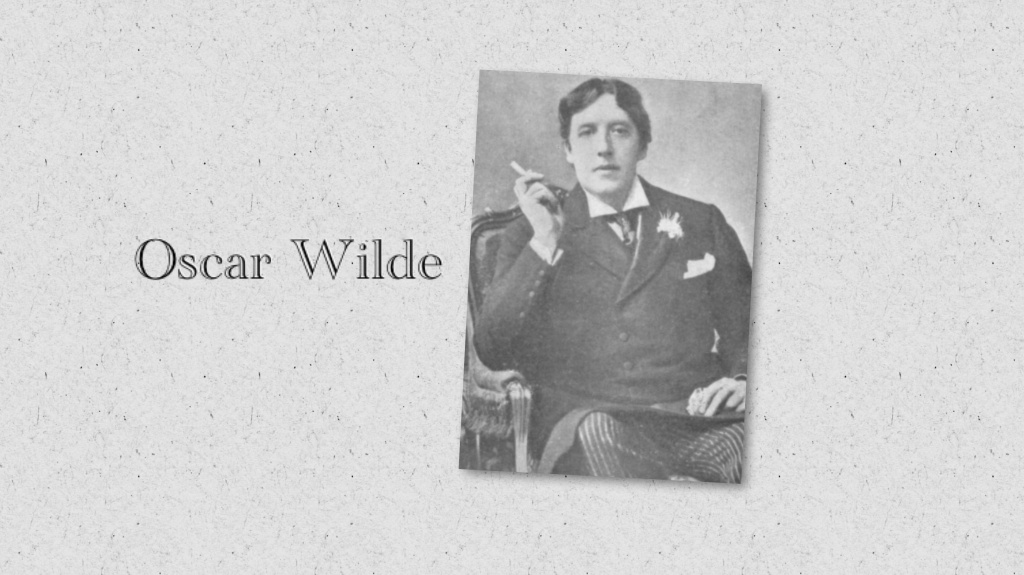
OSCAR WILDE: HIS LIFE AND CONFESSIONS
Part 1
On the 12th of December, 1864, Dublin society was abuzz with excitement. A tidbit of scandal which had long been rolled on the tongue in semi-privacy was to be discussed in open court, and all women and a good many men were agog with curiosity and expectation.
The story itself was highly spiced and all the actors in it well known.
A famous doctor and oculist, recently knighted for his achievements, was the real defendant. He was married to a woman with a great literary reputation as a poet and writer who was idolized by the populace for her passionate advocacy of Ireland’s claim to self-government; “Speranza” was regarded by the Irish people as a sort of Irish Muse.
The young lady bringing the action was the daughter of the professor of medical jurisprudence at Trinity College, who was also the chief at Marsh’s library.
It was said that this Miss Travers, a pretty girl just out of her teens, had been seduced by Dr. Sir William Wilde while under his care as a patient. Some went so far as to say that chloroform had been used, and that the girl had been violated.
The doctor was represented as a sort of Minotaur: lustful stories were invented and repeated with breathless delight; on all faces, the joy of malicious curiosity and envious denigration.
The interest taken in the case was extraordinary: the excitement beyond comparison; the first talents of the Bar were engaged on both sides; Serjeant Armstrong led for the plaintiff, helped by the famous Mr. Butt, Q.C., and Mr. Heron, Q.C., who were in turn backed by Mr. Hamill and Mr. Quinn; while Serjeant Sullivan was for the defendant, supported by Mr. Sidney, Q.C., and Mr. Morris, Q.C., and aided by Mr. John Curran and Mr. Purcell.
The Court of Common Pleas was the stage; Chief Justice Monahan presiding with a special jury. The trial was expected to last a week, and not only the Court but the approaches to it were crowded.
To judge by the scandalous reports, the case should have been a criminal case, should have been conducted by the Attorney-General against Sir William Wilde; but that was not the way it presented itself. The action was not even brought directly by Miss Travers or by her father, Dr. Travers, against Sir William Wilde for rape or criminal assault, or seduction. It was a civil action brought by Miss Travers, who claimed £2,000 damages for a libel written by Lady Wilde to her father, Dr. Travers. The letter complained of ran as follows:—
Tower, Bray, May 6th.
Sir, you may not be aware of the disreputable conduct of your daughter at Bray where she consorts with all the low newspaper boys in the place, employing them to disseminate offensive placards in which my name is given, and also tracts in which she makes it appear that she has had an intrigue with Sir William Wilde. If she chooses to disgrace herself, it is not my affair, but as her object in insulting me is in the hope of extorting money for which she has several times applied to Sir William Wilde with threats of more annoyance if not given, I think it right to inform you, as no threat of additional insult shall ever extort money from our hands. The wages of disgrace she has so basely treated for and demanded shall never be given her.
Jane F. Wilde.
Part 2 coming soon!
Like Oscar Wilde Books?
Click here for Oscar Wilde short story collection https://dailyshortstory.blog/oscar-wilde/


Leave a comment